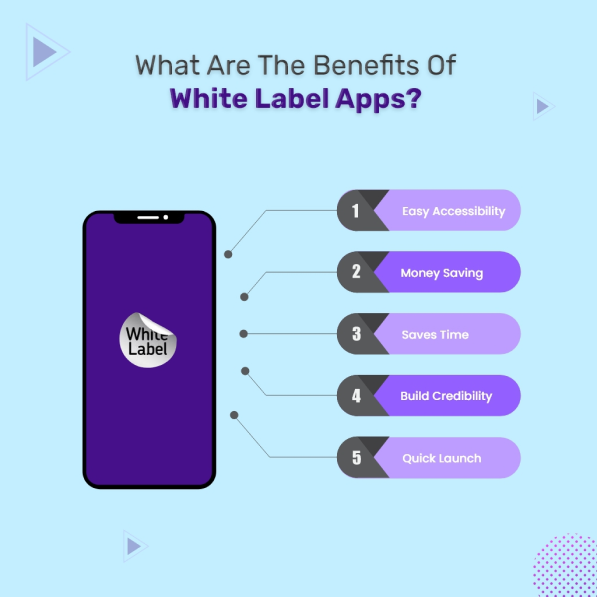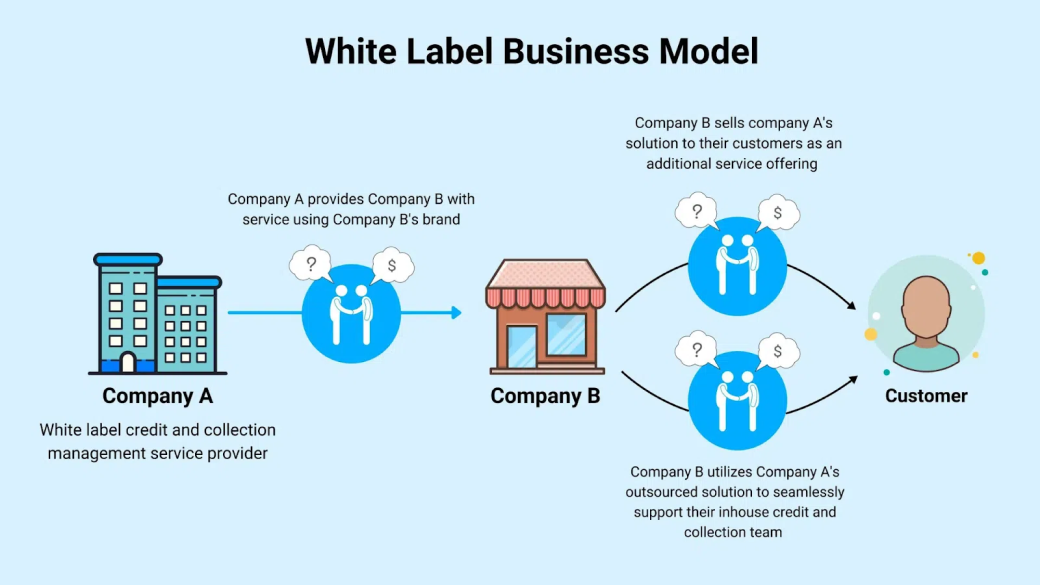White-labeling a smartphone app is a wonderful alternative that so many organizations select since it is less expensive than bespoke development & provides more freedom & personalization just like mobile application builders. Companies are looking ahead to the finest white-label application development for their clients, with the average user expenditure on smartphone platforms being $10.64. This trend may benefit you in a variety of ways, such as a firm that requires an app, a technology supplier, or perhaps an advertising firm. Nevertheless, we feel that building and distributing white-label software is the most efficient and fastest way to fully capitalize on mobile development.

What exactly are White-Label Applications?
Whenever a product created by Corporation A is sold to the end-user underneath the brand of Corporation B, this is known as white-labeling. Amazon, for example, buys ready-made items from third-party producers & offers them to the public under the Amazon brand.
Because of their ease, white-label apps are popular. But if customers want anything more advanced in regards to functionality, design, technology, and infrastructure, they will most likely go for bespoke development because the cost will not be significantly higher.
If you determine that a business needs or wants to permit third-party integration, you usually do so through the use of APIs – an interface that includes a range of tools for incorporating important functionality.
There are several ways to go about white-labeling, as well as the choice is frequently not yours. Based on the API you select, you could:
-
Sync all applications to a single account to ensure reciprocal access.
-
Create a unique API access key for every application.
-
Have many keys, even if only for one client (for instance, for iOS & Android App).

The advantages of White-Label App Development
If you check out how to become a white-label application reseller you'll discover that white-label collaboration is highly prevalent these days. It's hardly surprising, given the numerous advantages of being a white-label software supplier, including:
You may concentrate on your major area of competence: White-labeling is a wonderful option for people who can design great apps but lack the skills or resources to sell them to end customers.
There is no need for coding: Furthermore, you could perhaps develop a white-label solution by yourself also you can develop it with a mobile app builder or if you already have a team of technology experts. But what happens if you're a professional app dealer rather than a developer?
You may access this market as well: If you outsource development to a reputable vendor or utilize a mobile app builder platform or for non-tech consumers. The need is increasing. Due to the growing popularity of mobile applications, an increasing number of businesses are looking to enhance their mobile reach without investing in developing apps.

Build An Engaging App For Free
White-label Apps Disadvantages
White labeling focuses on how one concept can benefit many people: However, it is not all roses—there are a few drawbacks to white-label software creation. The primary challenge is that white labeling typically means that the buyer does not have accessibility to the application's backend. This implies minimal to no freedom in terms of personalization or customization & scalability not to mention a lack of security management.
So it's no surprise that if a customer can afford customized web development, the danger of abandoning white-labeling grows.
Fortunately, you can reduce your chances of losing your companions. When developing a white-label app, you must understand how to adjust to potential purchasers' present & prospective business needs.
Note- This barrier can be overcome by using Swipecart’s no-code app builder which offers limitless customization and 3rd party integrations. You can create your app in just minutes.
Cloud-based Setup: Because many white-label services now are cloud-based for comfort, clients must transfer the user's data to the cloud, allowing other corporations to access their customer's data. This can exacerbate data exportation concerns.
Code Quality: Customers have no control over the coding used to generate the app in white-label services or products.
App Store Rejection: One of the most typical issues experienced while dealing with white-label mobile apps is rejection by various app stores. Since application requirements in app stores have been revised to reduce clone & spam applications.
Functionality: The white-label app creation service has limited functionality. However, it lacks several complex functions that might aid in audience segmentation.
Scaling is limited: The expansion of the white-label application is the biggest difficulty caused by the lack of updates. For example, while developing a mobile application from the ground up, the company must ensure that the program functions properly. Nevertheless, the consumer has no option but to believe the intentions of the white-label mobile app provider.

White-label applications are ideal for modernizing your company. There is no need to recreate the wheel, particularly since white-label apps are readily accessible.
To succeed, smaller companies must penetrate the mobile market, as well as the best way to do so is to have a unique & distinct mobile presence. Mobile app builders like Swipecart are just the right source for it because they offer limitless personalization.



